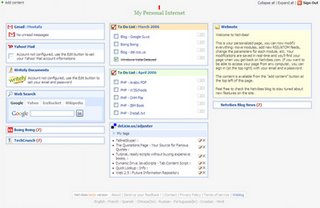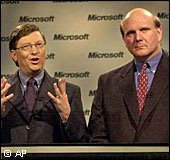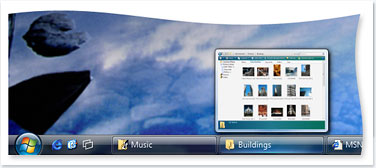
We all know the advantages of Skype, but what about the disadvantages that we all don't know?
Is Skype secure? Is the program safe to use? Is Skype more secure than a telephone call made with an analog or ISDN telephone? How does the security of Skype compare with other VoIP-based systems?

Skype binds to three ports on the user's computer and directly manipulates Windows XP's built-in firewall to accommodate these network bindings..

Skype's file transfer function does not contain any built-in anti-virus protection that scans programs as they are downloaded..

Skype accesses the hard disk several times per minute..
Although those accesses are small, extremely fast and safe in the short term, they can be harmful in the long term..

Niklas Zennstrom, co-founder of Skype, has admitted that the current security model would not open-source:
Would he make Skype open-source? No, that would make its strong 1024 bit encryption and security vulnerable: "We could do it but only if we re-engineered the way it works and we don't have the time right now."
In cryptography and computer security, security through obscurity (sometimes security by obscurity) is a controversial principle in security engineering, which attempts to use secrecy (of design, implementation, etc.) to ensure security. A system relying on security through obscurity may have theoretical or actual security vulnerabilities, but its owners or designers believe that the flaws are not known, and that attackers are unlikely to find them..

A few people will give up a "normal" phone for a PC-linked Skype connection. New products, such as standard phone handsets with USB connectors, help blur the line separating Skype from the rest of the telephone world, but that line remains..

Is Skype's completely proprietary nature. Open source fans don't appreciate Skype's rejection of open source values and standards. Large companies don't appreciate Skype's way of worming through corporate firewalls..

Skype do not follow standards, two major computer-based phone products that do follow standards, SIPphone and FreeWorldDialup, have tiny market share compared to Skype but have the weight of internet standards on their side. Their limited market share will not threaten to overwhelm Skype but may grow large enough to push Skype to involvement with the standards community. That probably won't happen until at least 2008, and will likely depend on how Microsoft implements Voice over IP support in Windows Vista..

The integrity of the data, i.e. data modified while traveling though peers, even if encrypted, is unknown and undocumented..

Skype provides an uncontrolled registration system for users: registration requires no proof of the identity of the user at all. This works two ways: you can use the system without revealing your identity to other users of the system, but on the other hand you have no guarantees that the person you communicate with is the one they say they are..

Skype is a proprietary software program using undocumented protocols, and laws prohibit reverse-engineering it..

Skype implements some kind of "peer-to-peer" network over client machines, with clients on fast connections becoming major exchange points; since research centers typically have very high speed connections, machines running Skype in those centers may generate very high traffic; some networks were reportedly nearly saturated by Skype traffic..

The information flow implemented by Skype is unknown; though encryption is used, it is unknown where traffic goes..

Skype claims that its system uses the RSA encryption algorithm for key exchange and 256-bit AES as its bulk encryption algorithm. However, Skype does not publish its key exchange algorithm or its over-the-wire protocol and, despite repeated requests, refused to explain the underlying design of its certificates, is authentication system, or its encryption implementation. Therefore it is impossible to validate the company's claims regarding encryption. It is entirely possible that the data is both encrypted and not secure..

Skype could also be an infection vector for spyware. Although the program's creators promise that their program does not come with spyware or adware, it is possible that they are not being truthful or that their policy will change in the future. Skype could have security vulnerabilities that a third-party could exploit..

Finally, it must be remembered that the security of the Skype system also depends entirely on the good will of Skype’s programmers and the organization running Skype’s back-end servers. It is possible that there are back doors in the system allowing the Skype organization or others to record Skype conversations, turn on a computer's microphone and record the room's noise..
<.adjuster />
 The aim of it is to provide a place on the internet where you can set just the content you like, a super easy way of building your personalized homepage, available anywhere, anytime. No registration is needed, however if you want to access your page from another computer you'll be able to do it by registering with your email address and a password..
The aim of it is to provide a place on the internet where you can set just the content you like, a super easy way of building your personalized homepage, available anywhere, anytime. No registration is needed, however if you want to access your page from another computer you'll be able to do it by registering with your email address and a password..
 The new version of Microsoft Windows, called Vista, is now delayed..
The new version of Microsoft Windows, called Vista, is now delayed..

 We all know the advantages of Skype, but what about the disadvantages that we all don't know?
We all know the advantages of Skype, but what about the disadvantages that we all don't know? Skype binds to three ports on the user's computer and directly manipulates Windows XP's built-in firewall to accommodate these network bindings..
Skype binds to three ports on the user's computer and directly manipulates Windows XP's built-in firewall to accommodate these network bindings.. Skype lets you make free calls over the internet to anyone else who also has Skype. It's free and easy to download and use, and it works with most computers. Skype offers free global telephony and unlimited voice calls with its next-generation peer-to-peer software.
Skype lets you make free calls over the internet to anyone else who also has Skype. It's free and easy to download and use, and it works with most computers. Skype offers free global telephony and unlimited voice calls with its next-generation peer-to-peer software. The idea is to sell 1 pixel on the screen for 1$..
The idea is to sell 1 pixel on the screen for 1$..
 Switching to a new email address can be a pain, but it doesn't have to be. To get personalized help on how to switch to Gmail, enter the
Switching to a new email address can be a pain, but it doesn't have to be. To get personalized help on how to switch to Gmail, enter the